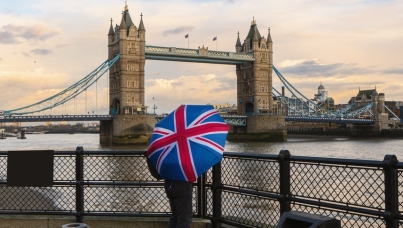A review of survey research on Muslims in Britain
A new report by Ipsos brings together and analyses research from various sources and explores the attitudes of British Muslims as well as the views of the public towards Muslims. The report was supported by the Aziz Foundation, Barrow Cadbury Trust, The Joseph Rowntree Charitable Trust and Unbound Philanthropy.
The research findings shows that:
There are a lot of similarities between the views of Muslims and the general public
There are many aspects of life where Muslims are no different to the general population. For example, Muslims have very similar levels of life satisfaction to the general public, they tend to be satisfied about the area where they live (82% satisfied for Muslims vs 86% for the general public) and slightly more optimistic that their local area has improved (23% vs 17% for the public). Muslims are positive about community spirit in their area, which is in line with the general population.
Muslims have a strong sense of belonging to Britain
Fairly consistently across all the data that we examined it is evident that Muslims feel a part of British society (88% say they very or fairly strongly belong to Britain) and they have a strong sense of attachment to British identity. Muslims have strong sense of commonality with other Britons, which is higher among Muslim UK graduates.
Religion plays a far more important part of life for Muslims than it does for others
Religion is far more important to Muslims’ sense of identity than it is for others, which is notable given that wider research points to a decline in religion in British life. Religion is a particularly important to Muslims holding a UK degree. The vast majority of Muslims believe they can practice their religion freely in Britain and that being a Muslim is completely compatible with the British way of life. However, there are concerns that not enough is being done to protect the rights of Muslims and the review shows that Muslims are more likely to be worried about being a victim of crime because of their religion, ethnicity or skin colour.
Young Muslims hold distinct views to older Muslims
Younger Muslims are quite a distinct group in their views and outlook and this is particularly the case among young Muslim UK graduates. Across a range of attitudes, younger Muslims demonstrate more outward looking and liberal views. For example, younger Muslims have a more diverse friendship groups than their older counterparts, and are more relaxed on issues such as inter-racial marriage. Younger Muslims – particularly UK graduates – are more likely to be politically active than Muslim non-graduates. At the same time, this group is more likely to report experiences of discrimination and feel that prejudice against Muslims is increasing.
The British public hugely overestimates the number of Muslims in the country
The public thinks that around 1 in 6 Britons are Muslim, when actually fewer than 1 in 20 are and while trends indicate people’s estimates may be moving in the right direction, they are still overestimating by quite a distance.
The public’s views on Muslims are mixed and understanding of Islam is limited – but age and knowing someone Muslim make a difference
The review indicates that public’s understanding of Islam is very limited with a minority (32%) saying they have a good understanding of the religion. When asked about the compatibility of Islam with British life, views tend to be more negative. However, one finding that is consistent is that the views of young people overall tend to be more positive than older people. Similarly, those who personally know someone who is Muslim tend to be more positive in their views.
Kully Kaur-Ballagan, Research Director at Ipsos said:
This report is an important study as it synthesises many of the surveys that have been done examining the attitudes of British Muslims as well as the attitudes of the British Public towards Muslims. The report highlights that British Muslims are a diverse group of people – much like the public as a whole. They have a strong sense of British identity and while religion does play a greater role in the lives of Muslims than the general population, the vast majority believe that being Muslim and being British is entirely compatible. Yet, the report indicates that there are increasing concerns that religious prejudice towards Muslims is rising. While the British Muslim population has a younger age profile than the population as a whole, the findings shows that younger Muslims are a distinct group; they are more open in their views and have more diverse social networks – this is particularly the case for those who are graduates.
The findings also show that public opinion towards Muslims is mixed. Muslims make up just under five percent of the population yet the British public think it’s three times this figure. And while the majority think that Islam is peaceful religion, they believe that most people perceive the religion in a negative way. Again, in the general population we also find that the views of younger people tend to be more positive and open towards Muslims than other age groups.






